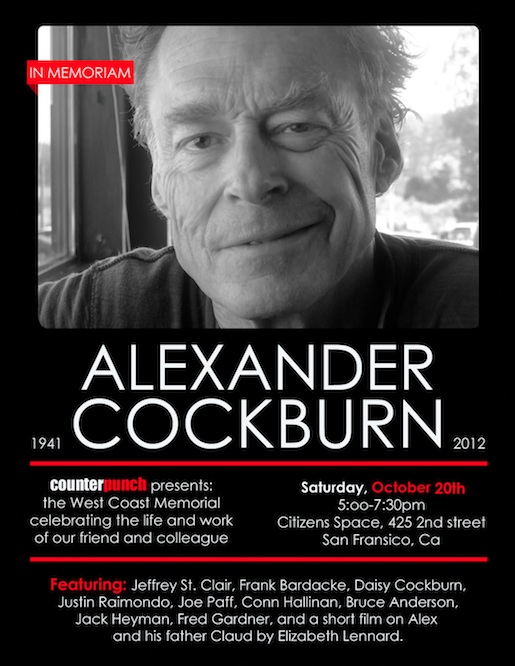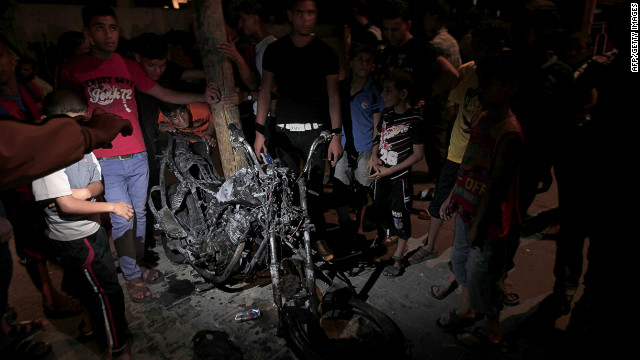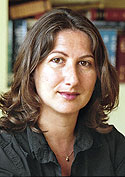
Alexander Cockburn
June 06, 1941 – July 21, 2012
Master of Ceremonies – Jeffrey St. Clair
Speakers
Joseph Paff
Conn Hallinan
Alison Weir
Scott Handleman
David Yearsley
Fred Gardner, with guitar
Becky Grant
Jack Heyman
Justin Raimondo
Zach Blue
Sheryl Chard
Frank Bardacke
Bruce Anderson
Daisy Cockburn
*
Cockburn, the Israel Lobby and the Palestinians
Ripping Open the Curtain on the Forbidden
Alexander Cockburn was a brilliant, witty, and courageous opponent of falsehoods and injustice. He stood on the side of the oppressed, the weak, and the victimized – even those victims that many writers and human rights defenders chose to ignore.
With his scathing intellect, engaging talent, far ranging knowledge, and quick humor, the Oxford-educated Cockburn could have become a celebrated, wealthy journalist – the kind whose lucrative articles are consistently published in top journals, whose best-selling books are reviewed widely throughout the media, and whose commentary is in demand by the top television and radio news programs.
Instead, he used his extraordinary abilities to skewer dishonesty, expose cruelty and hypocrisy, and spread facts that many wished to remain hidden.
Although he was not known as an activist on Israel-Palestine, I believe that history will show Alexander Cockburn to have been one of the most important figures in the quest for justice in Palestine. While most others on the left were largely ignoring, obscuring, or misrepresenting the facts on this issue, Cockburn was exposing them.In fact, he lost his first major position in the U.S., as a writer for the Village Voice, because of his articles discussing Israel-Palestine and Israel’s ruthless invasion of Lebanon. His pieces earned the enmity of both Zionists and those who claimed they weren’t, but who had what former Voice writer James Wolcott describes as a “gravitational pull to Israel.”
When Cockburn received a $10,000 research grant from the Massachusetts-based Institute for Arab Studies to investigate Israel’s invasion of Lebanon, Israel partisans saw this as a way to get rid of him. (He had been recommended for the grant by Columbia professor Edward Said.)
An article published by the Boston Phoenix after Cockburn’s death, “How the Boston Phoenix Got Alexander Cockburn Fired from the Village Voice,” gives some of the details.
The Phoenix, which was then published by Israel partisan Stephen Mindich (and now by his son), reported on the grant in an article written by Alan Lupo, a writer with a record of consistent pro-Israel bias in his articles. The piece was headlined “Alexander Cockburn’s $10,000 Arab connection” and subtitled “A question of propriety.” For his story Lupo phoned Village Voice Editor David Schneiderman, who eventually suspended Cockburn because of an alleged “conflict of interest.”
Other pro-Israel journalists gleefully took up the refrain, suggesting that Cockburn had acted improperly in accepting money from “the Arabs.” Recent obituaries mentioned the incident and continued this spin.
The validity of this charge, however, is significantly diminished by the fact that receiving a grant from an American foundation is normal, acceptable, and standard practice, as evidenced by the multitude of books in which author acknowledgements thank the various foundations that have funded their research.
As James Wolcott pointed out in his Vanity Fair blog: “Much handwringing to-do was made at the time of the incident about the need for journalistic transparency and accountability and such but let’s be honest — if it had been a Jewish-American organization or Israel front forking off the relative piddling sum of $10 thou, there hardly would have been this gummy uproar.”
Wolcott went on to note, “Imagine how many Beltway pundits, commentators, consultants and the like are on the take today via speaking fees, serving on panels, free fact-finding trips to the Mideast, etc. Alex’s sin was in aligning with the wrong team.”
The articles in 1984 and since that focused on Cockburn’s alleged “impropriety” failed to mention the fact that, according to prominent pro-Israel journalist Michael Kinsley, numerous journalists have gone to Israel on trips financed by the Israeli government – a far sketchier proposition. *
Governmental funding of journalism, in fact, is considered so problematic that a number of Israel Lobby organizations such as Act for Israel and the Washington Institute for Near East Policy have now stepped in to finance such journalistic junkets to Israel, removing the need for the Israeli government to be directly involved.
The fact that many journalists go on these Lobby-financed junkets also went unmentioned in the articles that brought up Cockburn’s allegedly improper grant and supposed conflict of interest. Also unmentioned was the fact that many journalists reporting on Israel-Palestine have close family – and sometimes personal – ties to the Israel military.
And there is still more to the story – which also is not referenced in recent obituaries. According to a 1992 article by former AIPAC insider Gregory Slabodkin, “AIPAC [the American Israel Public Affairs Committee] was the source of the original Phoenix story.” AIPAC is a leading institution in the Israel Lobby.
In his article, “The Secret Section in Israel’s U.S. Lobby That Stifles American Debate” published by the Washington Report on Middle East Affairs, Slabodkin described how AIPAC secretly monitors individuals critical of Israel and feeds negative information about them to the media.
Slabodkin, who used to work for the section within AIPAC responsible for this surreptitious activity, reported that Lupo “said AIPAC had told him the Institute for Arab Studies was ‘linked to a $100 million campaign to sway U.S. policy against Israel.’” In reality, Slabodkin reported, “the Institute had U.S. tax-exempt status and listed individual contributors within the United States until it closed down in 1983 due to a lack of funds.”
Slabodkin discussed AIPAC’S promulgation of anti-Arab bigotry as a tactic to protect Israel: “AIPAC attempted to discredit critics of Israel not by refuting their arguments, but by trying to tie them to Arab money. Making an Arab connection can damage the victim’s reputation, the pro-Israel lobby believes, so long as it can encourage a mindset in the United States that anything Arab-related is tainted.”
While Voice Editor Schneiderman at first defended Cockburn, he eventually went along with the charges, suspending him for what he claimed was a conflict of interest, and Cockburn left.
Schneiderman, who had originally been hired to edit the Voice by Rupert Murdoch, went into increasingly lucrative directions, eventually making tens of millions of dollars by turning the Village Voice and its offspring into advertising money machines, largely through classified ads, some of which eventually got the paper sued for the grotesque sex trafficking they enabled. He is currently employed at a PR firm advising global corporations on corporate communications, crises, antitrust and other regulatory matters, labor relations, and environmental issues.
Cockburn, on the other hand, continued to skewer the powerful, mendacious, hypocritical, and cruel. His biting and occasionally very funny essays were published in periodicals from the Nation to the Wall Street Journal, both of which employed him as a columnist, and collected in his book Corruptions of Empire and others.
A scan of these reveals that in the 1980s he was already exposing the neocons and their appaling agenda. In “The Gospel According to Ali Agca,” originally published in the Nation in 1985, he described the CBS documentary “Terrorism: War in the Shadows,” and reported the implied challenge by alleged “terrorism expert” Robert Kupperman not to let TV images of “charred babies” and our guilt over Vietnam interfere with our commitment to fighting “terrorists.”
CounterPunch
Most important, in 1998 Cockburn and co-editor Jeffrey St. Clair brought CounterPunch online. In subsequent years they created an extraordinarily non-doctrinaire muckraking website where independent writers could cover a wide variety of topics fully, accurately, and without being constrained by positions decreed by political orthodoxy.
CounterPunch has covered Israel-Palestine with a thoroughness and honesty that few if any other non-specialty publications have approached. Moreover, it has been uniquely open to pieces by writers from a wide variety of backgrounds and perspectives.
I am personally indebted to CounterPunch, which was the first general interest publication to publish my pieces on the topic. Without CounterPunch, I think it is quite likely that my articles on Israel-Palestine would never have made it into the small, fairly closed world of highly regarded progressive general interest publications.
While most other media were covering Israel-Palestine very little, if at all – and were frequently obscuring such central issues as the Palestinian right of return, the systemic discrimination within Israel itself, the power of the Israel Lobby in the U.S., and Israel partisans’ direct connections to the invasion of Iraq – CounterPunch contributors were exposing all in meticulous, principled detail.
When former Zionists worked on a campaign to blackball some writers, including two Israeli anti-Zionist authors, for allegedly going too far in their subject matter, CounterPunch refused to bow to the attempted party line and continued to publish their thought provoking, often highly informative pieces.
The importance of what Cockburn and co-editor St. Clair have achieved in CounterPunch cannot be overstated. Without CounterPunch, it is quite likely that essential information on Israel-Palestine would have remained largely hidden from progressive American readers. CounterPunch not only published critical facts itself; by carrying thoroughly cited articles on information that had previously been buried, it also pushed other American publications and individuals into discussing Palestine with greater depth, frequency, and honesty.
The censorship on Israel-Palestine has been far more serious and profound than most people realize. It has pervaded both the left and the right and has long worked to minimize informed discussion on the subject and prevent effective work for justice and peace.
CounterPunch ripped open the curtain.
#
** Robert Kupperman was in on the ground floor of building the war against certain types of terror. He created the Cabinet Committee to Combat Terrorism under President Richard Nixon. This was in response to Palestinian fighters who had taken eleven Israeli athletes hostage to use in an exchange to free Palestinian men and women held (and tortured) in Israeli prisons. When Israeli Prime Minister Golda Meir refused to consider such an exchange, a bungled rescue attempt resulted in the hostages being killed. The next day Israel launched air attacks against Lebanon and Syria, killing between 200 and 500 Lebanese, Syrians and Palestinians, mostly civilians.”
When the UN Security Council tried to pass a resolution condemning these raids, the U.S. vetoed it, only the second time that the U.S. had vetoed a Security Council resolution in its history. This was the beginning of a long string of vetoes perpetrated to shield Israel from international condemnation of various massacres and other human rights abuses, creating extreme hostility toward the U.S. and escalating Americans’ risk from retaliatory “terror.” For more information see “The U.S. Cast the First of 29 Security Council Vetoes to Shield Israel” by Donald Neff, Washington Report on Middlel East Affairs Sept-Oct, 1993, p. 82. Also in Fifty Years of Israel, by Donald Neff, published by the American Educational Trust. Online at http://www.wrmea.org/archives/150-washington-report-archives-1988-1993/september-october-1993/7306-the-us-cast-the-first-of-29-security-council-vetoes-to-shield-israel.html
For information on American journalists’ ties to the Israeli military see Alison Weir’s article “US Media and Israeli Military: All in the Family”.







